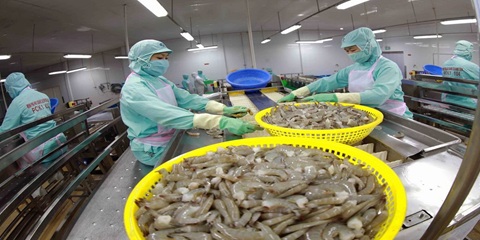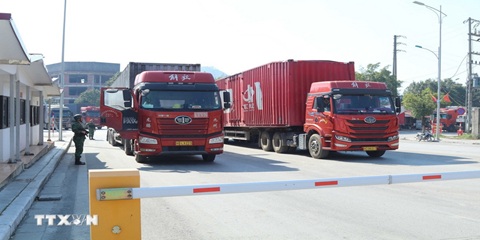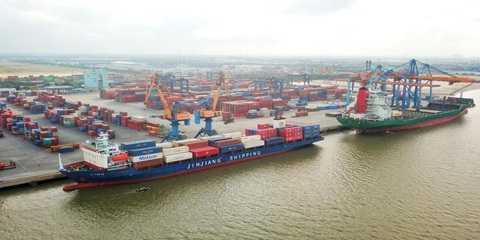Want to be in the loop?
subscribe to
our notification
Business News
30,000 F&B OUTLETS SHUT DOWN IN FIRST SIX MONTHS OF 2024
Vietnam's food and beverage (F&B) market is experiencing drastic changes, with more than 30,000 stores shutting down in the first half of 2024.
As of the end of June, Vietnam had around 304,700 F&B stores, down 4 per cent compared to the same period last year. More than 30,000 stores have closed nationwide, with a limited number of new openings, according to market analysis by iPOS.vn.
The report on Vietnam's F&B market in the first six months of the year surveyed nearly 1,000 restaurants and cafes, alongside more than 2,300 diners and 1,307 F&B employees with different ages and occupations.
Ho Chi Minh City has been the most heavily affected, with a 6 per cent decrease in the number of stores across the city. In Hanoi, the number of stores rose by about 0.1 per cent.
"The first six months of the year were difficult for the economy in general and the F&B industry in particular. We have witnessed a growing number of stores with a short lifespan (less than three months) in big cities," said a representative of iPOS.vn.
However, Vietnam's F&B market still generated nearly VND404 trillion ($16.2 billion) in revenue in the given period, equivalent to nearly 68 per cent of the revenue for the whole year 2023. This is a surprise in light of the challenging economic environment. The significant growth of the total transaction volume is attributable to various promotions launched by F&B stores to stimulate customer demand.
Businesses said they are becoming increasingly cautious about expanding their operations in the last six months of the year. The report by iPOS.vn reveals that 60 per cent of surveyed businesses are trying to maintain their current operational scale, while only 34 per cent plan to expand.
Amidst fierce competition in the food market, businesses are looking for ways to attract and retain customers. Findings show that promotions are an effective tool to increase customer volume for 25 per cent of businesses.
Regarding the impact of Decree No.100/2019/ND-CP on the beverage industry, less than 11 per cent of businesses believe that customers have become accustomed to not driving after drinking alcohol. This shows that changing consumer habits can take time and requires coordination among authorities, businesses, and consumers.
Source: VIR
Related News

VIETNAM’S SEAFOOD EXPORTS HIT OVER US$10 BILLION IN JAN-NOV
Seafood export revenue in November alone amounted to nearly US$990 million, up 6.6% year-on-year. Key product groups posted solid gains. Shrimp exports rose 11.7% to over US$385 million, supported by strong demand for whiteleg shrimp and lobster. Tra fish shipments increased 9.7% to almost US$197 million, while marine fish, squid, and mollusk exports maintained their recovery.

VIETNAM’S AGRO-FORESTRY-FISHERY EXPORTS HIT NEW RECORD IN JAN-NOV
Vietnam’s agro-forestry-fishery export revenue reached an estimated US$64.01 billion in the first 11 months of 2025, up 12.6% year-on-year and surpassing the full-year record of US$62.4 billion set in 2024. Agricultural exports reached US$34.24 billion, up 15% year-on-year, while livestock products brought in US$567.4 million, a 16.8% increase. Seafood exports rose 13.2% to US$10.38 billion, and forestry products earned US$16.61 billion, up 5.9%.

HANOI REPORTS RECORD-HIGH BUDGET REVENUE IN 2025
Hanoi’s budget revenue is estimated to reach VND641.7 trillion in 2025, the highest level ever recorded and nearly 25% above the revised target, according to a report by the municipal government. Data from the city’s socioeconomic performance review shows that total state budget collections in 2025 are projected to reach 124.9% of the adjusted plan and rise 24.9% from 2024, the Vietnam News Agency reported.

VIETNAM, CHINA TO PILOT TWO-WAY CARGO TRANSPORT AT LANG SON BORDER
Vietnam and China will launch a one-year pilot program on December 10 to allow two-way cargo transport through the Huu Nghi–Youyi Guan international border gates in Lang Son Province, reported the Vietnam News Agency. The Dong Dang-Lang Son Economic Zone Management Board said the trial aims to reduce transport costs and improve customs clearance capacity.

VIETNAM’S IMPORT-EXPORT VALUE NEARS US$840 BILLION IN JAN-NOV
The total value of Vietnam’s imports and exports was nearly US$840 billion between January and November this year, the highest level ever recorded, according to the National Statistics Office. In its latest report on the country’s socio-economic performance, the National Statistics Office highlighted a series of positive economic indicators, with trade emerging as one of the strongest drivers of growth.

OVER 19 MILLION INTERNATIONAL VISITORS COME TO VIETNAM IN JAN-NOV
Vietnam received more than 19.1 million international visitors in the first 11 months of 2025, a 20.9% increase year-on-year and the highest level ever recorded, according to the National Statistics Office. The figure surpasses the full-year record of 18 million arrivals set in 2019, before the Covid-19 pandemic. Nearly two million foreign visitors arrived in November alone, up 14.2% from October and 15.6% from the same period last year.
























